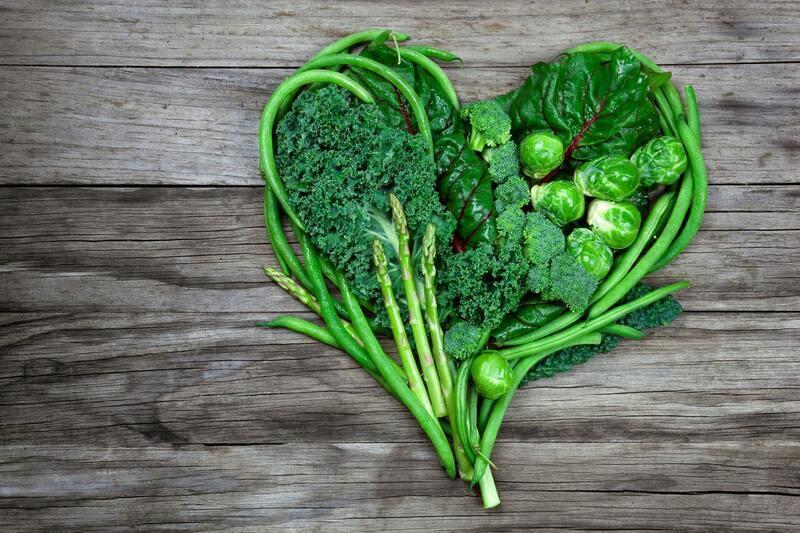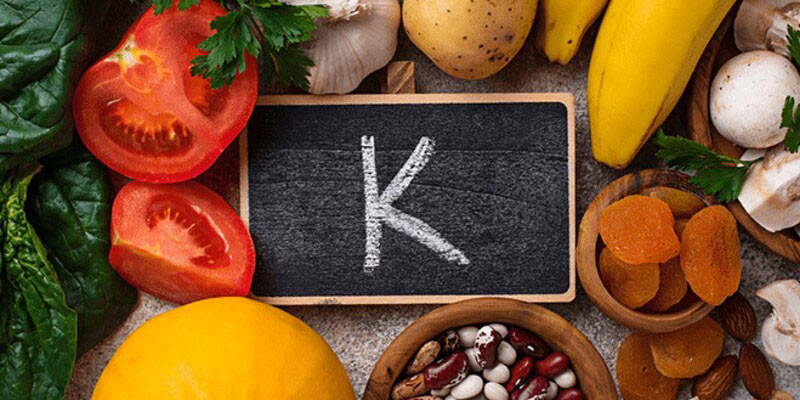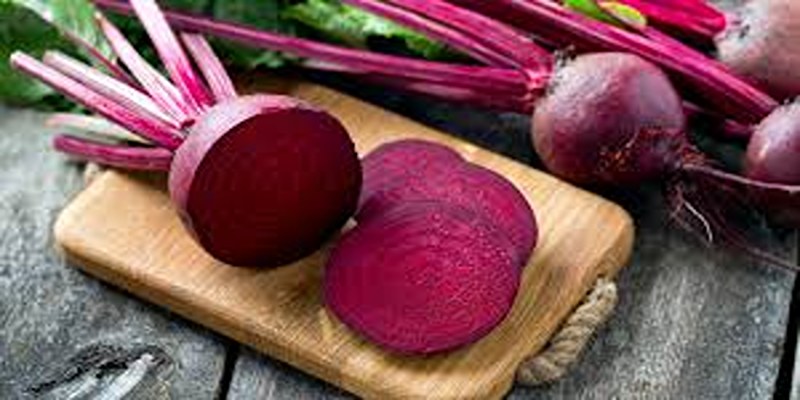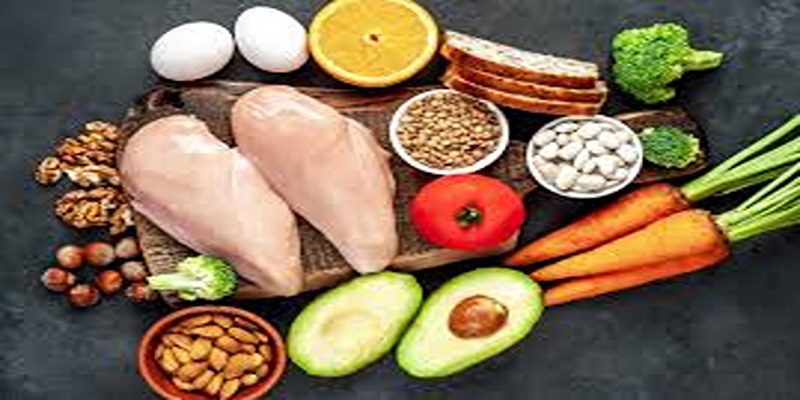Understanding Vitamin K for Optimal Health
Feb 10, 2024 By Nancy Miller
There is no doubt about the wonders of Vitamin K for your health. However, detailed knowledge is important to recognize the powers vitamin K has. This article unveils the multifaceted aspects of Vitamin K, a crucial fat-soluble vitamin that significantly influences blood clotting, bone metabolism, and cardiovascular health. It explores its rich food sources, provides dosage recommendations, and sheds light on potential side effects in the process.
1. Vitamin K Foods
Embark on a journey through the vibrant array of Vitamin K-rich foods. Standouts in this nutritional powerhouse include kale and spinach, both leafy greens. Besides providing ample Vitamin K, these vegetables contribute to blood clotting which is an essential process for our body's health maintenance. Furthermore, with their abundant antioxidants, they support overall immune function, making them indispensable additions to any diet plan! Another option rich in Vitamin K, broccoli provides a delightful crunch and an abundance of fiber for digestive health.
Similarly, Brussels sprouts, though often overlooked, present a unique taste along with substantial doses of the aforementioned vitamin. When we explore various oils such as olive oil and soybean oil, we uncover alternative sources that seamlessly enhance cooking, promoting both flavor and nutritional balance.
Less explored sources of Vitamin K are parsley and spring onions. These additions not only elevate your meal's flavor profile, but they also play a crucial role in boosting your daily intake of Vitamin K. With its fresh, vibrant taste, parsley can serve as an exemplary garnish or even form a pivotal ingredient in salads. Besides imparting a mild onion flavor, spring onions boost the nutritional value of your dishes by providing extra nutrients. Ensure a comprehensive approach to nutrition and promote holistic well-being through the incorporation of an array of Vitamin K-rich foods.
- Consideration: When incorporating Vitamin K-rich oils into your diet, be mindful of the overall fat content. While healthy fats are essential, moderation is key to maintaining a balanced diet.
- Caution: Individuals on anticoagulant medications should be cautious with leafy greens high in Vitamin K, as they can interfere with medication efficacy.
2. Benefits of Vitamin K
Vitamin K, beyond aiding in blood clotting, confers a plethora of health benefits. Its engagement in bone health surpasses mere calcium absorption. It triggers proteins, notably osteocalcin and matrix Gla protein (MGP), that govern bone mineralization. This action diminishes fracture risks and amplifies skeletal robustness. Moreover, the influence on heart health transcends arterial calcification prevention. Vitamin K improves cardiovascular function by inhibiting calcification within artery walls. Thus, reducing the potential for atherosclerosis and preserving arterial elasticity. By regulating blood vessel elasticity and aiding in optimal blood circulation, Vitamin K actively promotes cardiovascular well-being. This dual benefit highlights the essential role that Vitamin K fulfills in maintaining a strong, resilient body.

Unveiling its potential role in reducing inflammation involves exploring the lesser-known benefits of Vitamin K. Vitamin K contributes to overall immune system function by modulating inflammatory markers. Recent studies suggest a correlation between adequate levels of this essential nutrient and decreased risk for certain types of cancer, showcasing an extensive spectrum of health advantages associated with it.
- Noteworthy Fact: Vitamin K exists in two main forms, K1 and K2. While K1 is primarily found in leafy greens, K2 is present in fermented foods and animal products. Both forms contribute uniquely to the various benefits of Vitamin K.
- Consideration: Adequate Vitamin K levels may play a role in supporting cognitive function and reducing the risk of age-related cognitive decline.
3. Optimal Dosage of Vitamin K for Well-Being
Essential to reaping the benefits of Vitamin K without complications is determining the ideal dosage. A general guideline, with significant variations based on individual needs, proposes an average daily intake for men at 120 micrograms, and on the other hand, women should aim for a slightly lower figure of 90 micrograms. This recommendation serves two primary purposes. It promotes and maintains proper blood clotting, simultaneously bolstering bone health. To achieve an optimal dosage, one must consider factors extending beyond gender. These include age, medical conditions, and lifestyle choices.
For instance, pregnant women may necessitate varying levels of Vitamin K to bolster fetal development. Therefore, consulting with a healthcare professional becomes critical. It allows for personalized advice precisely aligned to specific circumstances. Furthermore, individuals grappling with gastrointestinal conditions that impede nutrient absorption or those taking medications that affect Vitamin K metabolism must seek guidance. This action ensures their intake remains both sufficient and secure.
- Noteworthy Fact: Vitamin K deficiency is rare but can occur in individuals with malabsorption issues, certain medical conditions, or prolonged use of antibiotics.
- Consideration: Consuming Vitamin K alongside healthy fats enhances absorption, making it advisable to pair Vitamin K-rich foods with sources of good fats.
4. Delicious Recipes to Boost Vitamin K Intake
Prioritize Vitamin K as you enrich your culinary repertoire with enticing recipes. From a vibrant kale and berry smoothie to the savory broccoli-feta frittata. These dishes, crafted for delightful consumption, not only introduce but also infuse an abundance of Vitamin K into your diet. A refreshing start to your day, the Kale and Berry Smoothie combines the goodness of Vitamin K with antioxidants from berries promoting overall health. The flavorful, nutrient-packed broccoli and feta frittata present a perfect option for those seeking satisfaction in their meals or brunches. Its savory appeal is undeniably attractive, indeed an irresistible choice.
Dive into the realm of salads. Create a kale and quinoa salad with an invigorating lemon vinaigrette. This addition not only introduces variety to your menu but it also merges textures alongside flavors to transform each bite into a nutritional delight. By experimenting with diverse recipes, you pave the path towards optimal health.
- Consideration: When cooking Vitamin K-rich vegetables, such as broccoli, steaming is a preferred method to preserve nutrient content.
- Caution: While incorporating Vitamin K through recipes is beneficial, moderation is key, especially for individuals on blood-thinning medications.
5. Navigating Potential Side Effects of Vitamin K
Consuming Vitamin K through food generally presents no safety concerns. However, caution should be exercised when taking supplements. An excessive intake of these may disrupt the effectiveness of blood-thinning medications and consequently trigger complications. Crucial mindfulness towards potential side effects is necessary, and consultation with a healthcare professional remains paramount, particularly for individuals with existing medical conditions or those on specific medications.

Comprehending the nuanced aspects of Vitamin K supplementation unveils its non-universal necessity. A balanced diet typically enables most individuals to attain adequate levels of Vitamin K, thereby diminishing their reliance on supplements. Yet, those suffering from particular medical conditions or deficiencies may require targeted supplementation under a healthcare provider’s supervision.
- Noteworthy Fact: Vitamin K is crucial for the synthesis of proteins involved in bone metabolism, making it an integral part of maintaining skeletal health.
- Caution: Individuals undergoing surgery should inform their healthcare providers about Vitamin K supplementation, as it can impact clotting factors.
Conclusion
The bottom line is that understanding Vitamin K extends beyond simple recognition of its associated foods and benefits. It involves a range of comprehensive actions. These include maintaining appropriate dosage levels, exploring delectable recipes that incorporate the nutrient, and acknowledging potential side effects. By doing so, you ensure harnessing the full potential of this essential element for a healthier and more vibrant life. Wisely incorporate the richness of Vitamin K into your lifestyle to optimize well-being.

Tasty Options: Gluten-Free Salad Dressings You Will Really Love

8 Gift Ideas for Those Desperate for a Better Night’s Sleep

Understanding Vitamin K for Optimal Health

Exploring the Health Benefits of Feta Cheese: Nutritional Guide

Exploring the Health Benefits of Pickled Beets: Nutrition and Wellness Guide

Best Foods High in Niacin: Essential for Energy and Health

6 best stretching exercises for tight leg muscles


